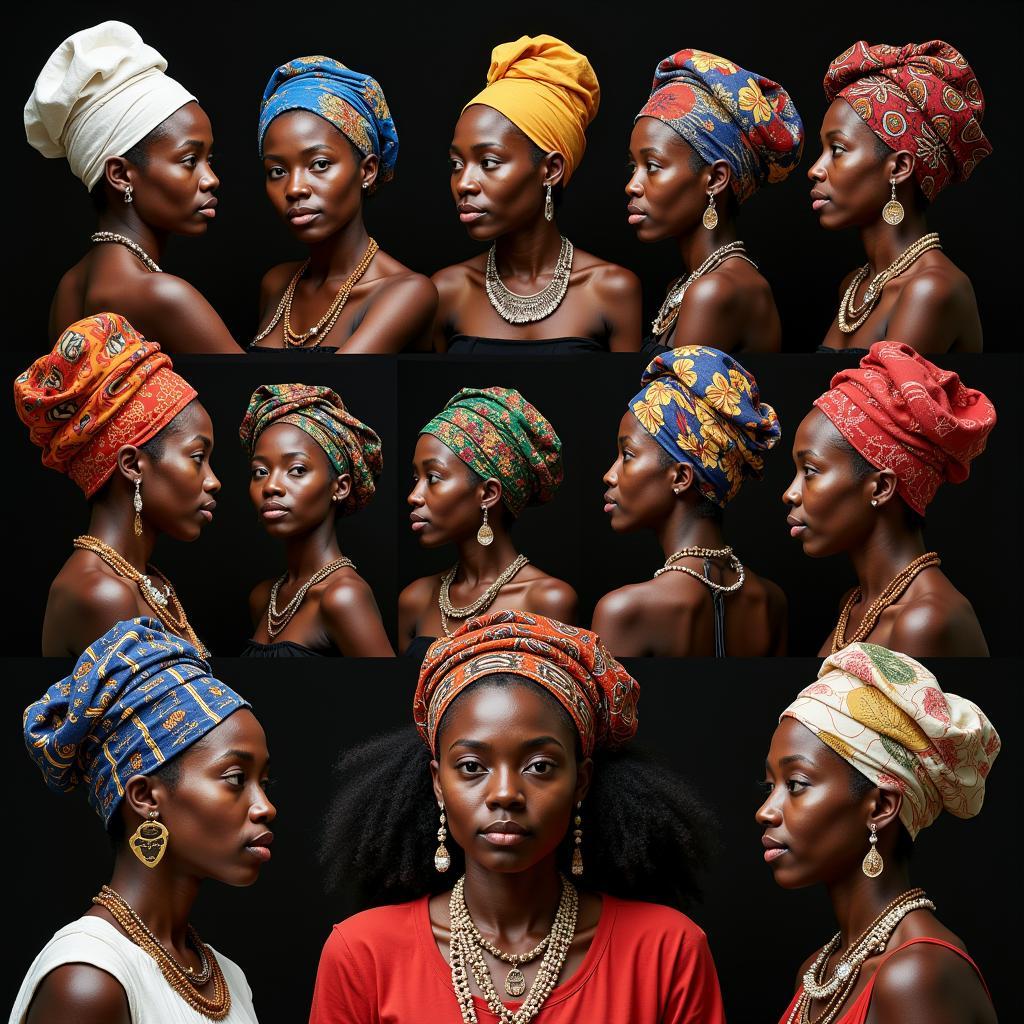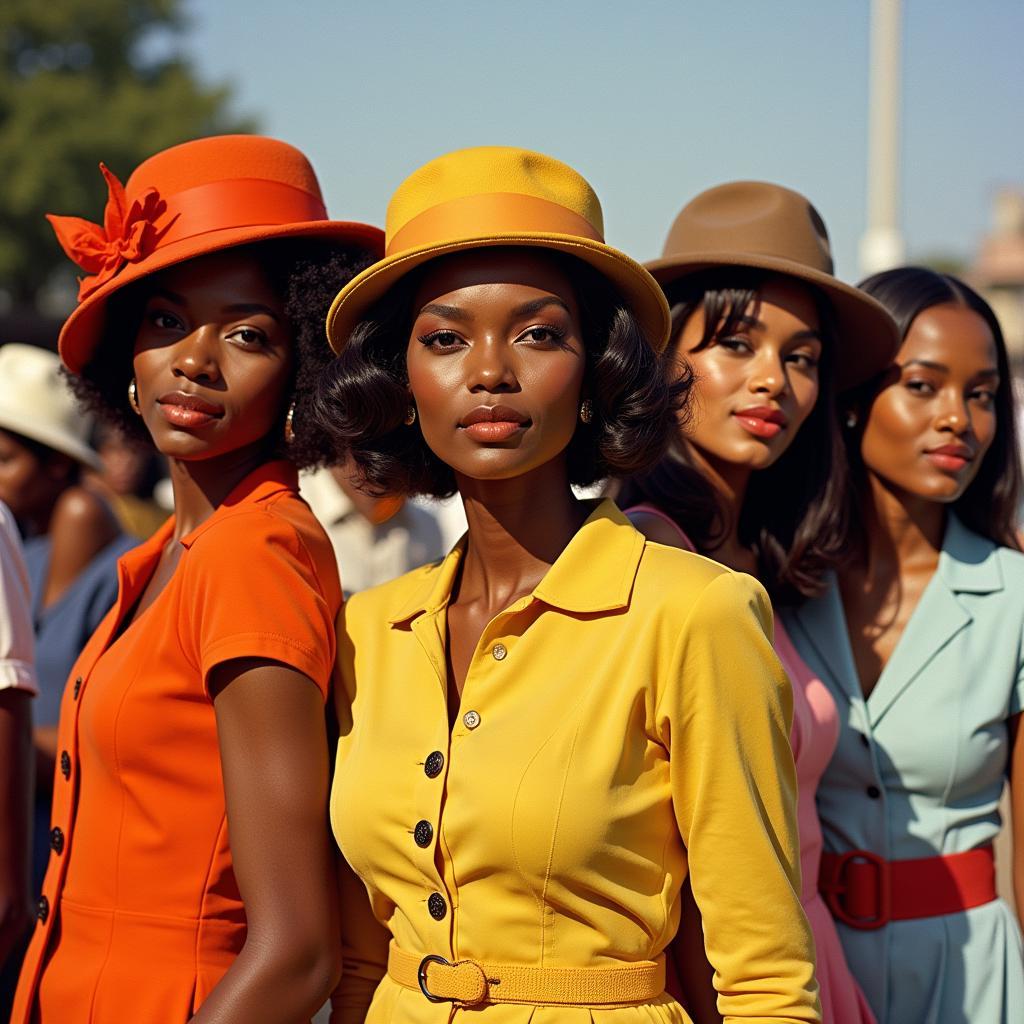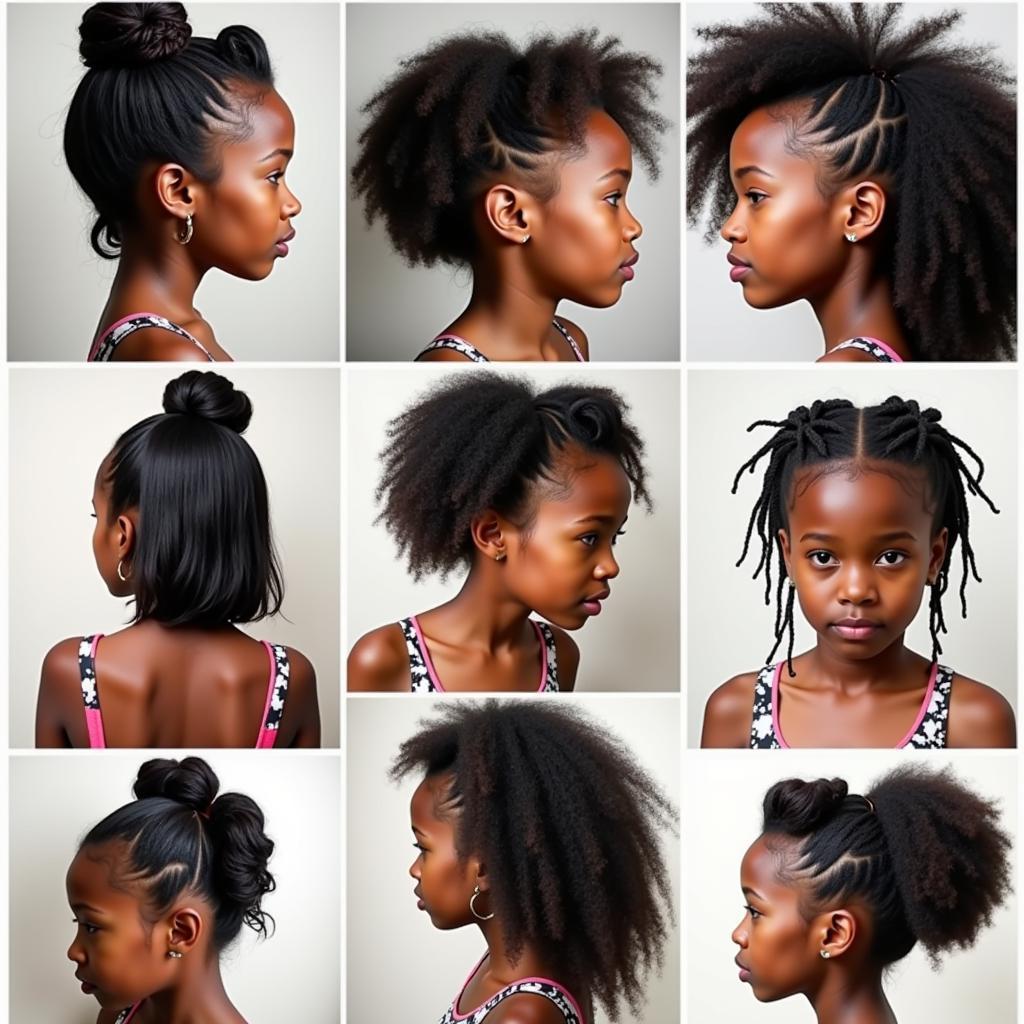African American Hats: A Legacy of Style and Significance
African American Hats are more than just headwear; they represent a rich cultural tapestry woven with threads of history, resilience, and self-expression. From their roots in the African diaspora to their evolving presence in contemporary fashion, these hats have always held a special place within the community.
A Journey Through Time: African American Hats and History
The story of African American hats begins with the forced migration of Africans to the Americas. While stripped of many cultural possessions, enslaved Africans retained their headwrapping traditions. These headwraps served practical purposes, shielding from the sun and holding hair during labor. However, they also became powerful symbols of resistance, identity, and community.
 Enslaved African Women in Headwraps
Enslaved African Women in Headwraps
With the abolishment of slavery, a new chapter unfolded. Jim Crow laws often dictated that Black women cover their hair in public spaces. This resulted in a surge of creativity, as women transformed this discriminatory practice into an opportunity for self-adornment. Elaborate hats, adorned with feathers, ribbons, and other embellishments, became a means of reclaiming dignity and expressing individual style.
The Sunday Best: Church Hats and Spiritual Expression
The role of hats in African American churches deserves special recognition. African American church hats history reveals a fascinating blend of faith and fashion. For generations, Sunday church service has provided a platform not only for spiritual devotion but also for showcasing one’s finest attire.
Church hats became synonymous with elegance, respect, and a deep connection to spirituality. These elaborate creations, often passed down through generations, transcended mere accessories, becoming cherished heirlooms imbued with family history and shared faith.
Beyond the Church: Hats in Everyday Life and Popular Culture
While church hats hold a special place, African American hats have graced a multitude of settings. From everyday life to special occasions, these hats have reflected the evolving styles and aspirations of the community.
African American ladies hats evolved alongside fashion trends, embracing wide brims, pillbox styles, and turbans with equal flair. These hats weren’t just about aesthetics; they were statements of individuality, echoing the social and political movements of their time.
“Hats were never just about covering our heads,” explains Dr. Anika Johnson, a cultural historian specializing in African American fashion. “They were about making a statement, owning our presence, and celebrating our unique beauty and resilience.”
 African American Women in Hats – 1960s
African American Women in Hats – 1960s
African American Hats Today: A Legacy Continues
In the 21st century, African American hats continue to thrive. Contemporary designers draw inspiration from the past, reinterpreting traditional styles with modern sensibilities. From the runways of New York to independent Black-owned businesses, these hats celebrate heritage while embracing innovation.
African American hair hats have become increasingly popular, offering stylish solutions for protecting natural hairstyles. Moreover, the rise of social media has provided new platforms for showcasing the creativity and diversity of Black hat-making traditions.
Conclusion
African American hats tell a story of cultural pride, resilience, and unwavering style. From their historical significance to their contemporary interpretations, these hats remain powerful symbols of identity and self-expression. They are a testament to the enduring legacy of creativity and resilience within the African American community.

